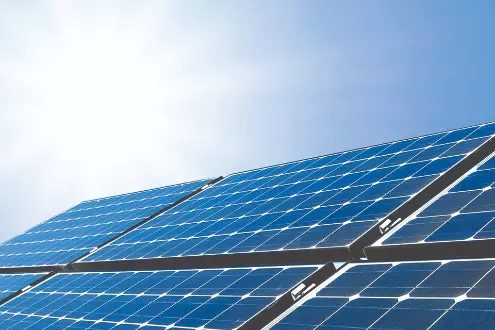From grid to green: DVVNL HQ, 391 offices in UP to shift to solar power

Lucknow: In a major step towards cutting power bills and promoting renewable energy, the Dakshinanchal Vidyut Vitran Nigam Limited (DVVNL) has decided to light up its headquarters and 391 offices across Uttar Pradesh with solar energy. The initiative is part of the company’s broader plan to reduce dependence on conventional electricity and align with the government’s push for clean energy.
The project has already taken off at the DVVNL headquarters, where nine solar panels have been installed on the instructions of Managing Director Nitish Kumar. Officials said the headquarters is now saving nearly 900 units of electricity every day. Encouraged by the results, the department has set its sights on expanding solar installations to offices spread across Agra, Firozabad, Etah, Mainpuri, Mathura, Kasganj, Hathras, Etawah, Auraiya, Kannauj, Farrukhabad, Kanpur, Kanpur Dehat, Jhansi, Jalaun, Lalitpur, Banda, Chitrakoot, Hamirpur and Mahoba.
“Some offices had solar panels earlier, but they became non-functional after the guarantee period ended. These units are being identified and repaired so that they can start generating power again,” Kumar said. He added that the company is focusing not only on expanding new capacity but also on reviving idle assets to maximise savings.
The initiative is in line with the Central and state governments’ efforts to encourage households and institutions to adopt solar power. Under the Pradhan Mantri Surya Ghar Muft Bijli Yojana, families are being urged to install rooftop solar plants. The scheme allows households to cut down on their electricity bills while also selling surplus power back to the grid.
According to DVVNL officials, around 17,000 homes have installed solar panels under the scheme in the past six months alone. “This is not just about saving energy, it is also about empowering families to generate income. We are reaching out to more households through awareness drives so that people can take advantage of this opportunity,” an official said.
Voices from the ground
For many households, the government’s scheme has been a game changer. Rajesh Kumar, a schoolteacher from Etawah, said installing rooftop panels has halved his monthly electricity bill. “Earlier, I used to spend nearly ₹2,500 a month on electricity. Now, the bill rarely crosses ₹1,200. The savings may look small, but for a middle-class family, it makes a huge difference,” he said.
Similarly, Meena Devi from Mainpuri shared: “We no longer worry about power cuts. On sunny days, the panels generate enough electricity to meet all our needs. Whatever extra power is produced goes back to the grid, and we get credits for it,” she said.
Experts say DVVNL’s move to run its offices on solar power will send a strong signal to consumers about the practicality of clean energy.



